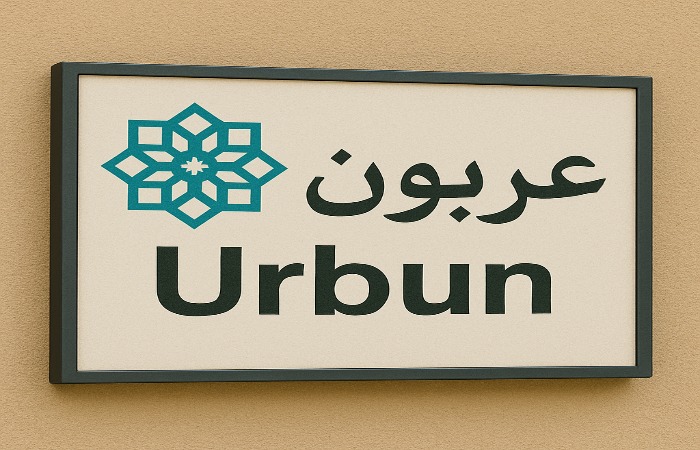Introduction: Beyond Profit and Compliance
The modern business world often measures success by financial growth, quarterly profits, and shareholder returns. While modern businesses have traditionally focused on maximizing profits for shareholders, often lacking a broader moral orientation, the rise of ESG has become a powerful counter-movement in the last decade only. ESG investing is not a minor trend but a rapidly growing, mainstream force that aims to integrate a wider set of ethical and social considerations into business strategy and investment decisions. Yet, this narrow lens misses the larger questions: Why do we act? Whom do we serve? What values underpin our transactions? Without clear moral grounding, commerce risks devolving into manipulation, exploitation, and distrust.
Islam, however, offers a holistic approach to business. Running a business is never just about making money. It is viewed not as a secular pursuit but as an extension of faith. Every trade agreement, wage contract, or a sales pitch is not just a transaction - it is a moral act, accountable before Allah, society, and one’s own conscience. For Muslims, business is more than a career path. It is an act of worship when conducted within the bounds of Sharia. Trade and commerce are seen as opportunities to practice honesty, fulfill social responsibilities, and strengthen communities. When carried out in line with Islamic principles, they become acts of worship that draw a person closer to Allah, bringing both divine reward and blessings.
The Quran and Hadith provide detailed guidance on how to earn, spend, and share wealth. At the core of this guidance are principles that shape a framework for ethical business conduct.These principles emphasize honesty, fairness, mutual respect, and social responsibility. Applied consistently, they not only protect individuals from injustice but also foster prosperity across society.
Business and the Framework of Accountability
Accountability is the cornerstone of Islamic business ethics. It is multi-layered and extends beyond legal compliance:
- Accountability to God (huquq Allah): Business dealings must align with divine principles of truth and fairness.
- Accountability to Creations (huquq al-‘Ibad): Every stakeholder - employees, customers, suppliers, and even the environment - has rights that must be honored.
- Accountability to the Self (nafs): Preserving moral integrity ensures that wealth does not corrupt character.
The Quran reminds us:
“Every soul, for what it has earned, will be retained.” - (Quran 74:38).
This framework transforms ordinary acts of commerce into spiritual events. A sales contract is not only enforceable in court - it is recorded in the divine ledger.
Leadership and Responsibility in Commerce
In Islam, leadership carries a profound moral weight. A business leader is not merely a strategist or manager but a shepherd entrusted with the care and well-being of others. The Prophet Muhammad (ﷺ) said:
“Each of you is a shepherd, and each of you is accountable for his flock.” - (Sahih al-Bukhari 7138; Sahih Muslim 1829)
This sense of responsibility was echoed by Umar ibn al-Khattab, the second caliph, who once remarked:
“If a lost sheep under my rule were to perish on the banks of the Euphrates, I fear I would be questioned about it by Allah.”
Such words capture a core Islamic principle: responsibility extends not only to one’s direct actions but also to their broader consequences. In Islam, a leader cannot distance themselves from accountability by placing blame on others or delegating actions that cause harm. Responsibility ultimately rests with them, both for what they do directly and for the outcomes that arise from their decisions.
Islamic business leadership therefore rests on stewardship (khalifah), where leaders are answerable for the moral, social, and environmental outcomes of their decisions. This goes beyond legal compliance, requiring integrity, justice, and transparency as central values in every business transaction. At the same time, Islam promotes moderation and balance, guiding leaders to avoid extremes and pursue sustainable growth over fleeting short-term gains.
By embodying high ethical standards, leaders not only secure long-term stability but also inspire trust within their organizations and the wider community. In practice, this often means choosing values over immediate profit, making decisions grounded in fairness, and seeking divine guidance, as the Quran advises:
“And when you have decided on a matter, then rely upon Allah. Indeed, Allah loves those who rely [upon Him].” - (Quran 3:159).
This integration of accountability, balance, and ethical responsibility ensures that business remains prosperous while staying firmly aligned with faith. Whether in hiring practices, environmental stewardship, or marketing strategies, Muslim entrepreneurs are reminded to weigh both the visible outcomes of their actions and the unseen ripple effects that may follow.
The Quranic Foundations of Business Ethics
The Quran consistently emphasizes honesty, fairness, and social responsibility in commerce:
- Legitimacy of Trade:
“But Allah has permitted trading and forbidden interest.” - (Quran 2:275).
- Truthfulness in Dealings:
“Do not mix truth with falsehood or hide the truth knowingly.” - (Quran 2:42).
- Condemnation of Fraud:
“Woe to the defrauders! Those who take full measure when they buy from people, but give less when they measure or weigh for buyers.” - (Quran 83:1-3).
- Fairness in Measurement:
“Give in full when you measure, and weigh with an even balance. That is fairest and best in the end.” - (Quran 17:35).
- Prohibition of Exploitation:
“O believers! Do not devour one another’s wealth illegally, but rather trade by mutual consent.” - (Quran 4:29).
These verses form the bedrock of Islamic business law. They go beyond prohibiting fraud and they demand transparency and mutual agreement in every contract.
The Prophetic Model of Business Conduct
The Hadith further reinforce these values with practical guidance:
- On honesty in trade:
“It was narrated from Ibn 'Umar that the Messenger of Allah ﷺ said: 'The trustworthy, honest Muslim merchant will be with the martyrs on the Day of Resurrection." - (Sunan Ibn Majah 2139).
- On avoiding deception:
“It is narrated on the authority of Abu Huraira that the Messenger of Allah (ﷺ) happened to pass by a heap of eatables (corn). He thrust his hand in that (heap) and his fingers were moistened. He said to the owner of that heap of eatables (corn):
What is this? He replied: Messenger of Allah, these have been drenched by rainfall. He (the Holy Prophet) remarked: Why did you not place this (the drenched part of the heap) over other eatables so that the people could see it? He who deceives is not of me (is not my follower).” - (Sahih Muslim 102).
- On sincerity in transactions:
“Narrated `Abdullah bin `Umar:
A man mentioned to the Prophet (ﷺ) that he had always been cheated in bargains. The Prophet (ﷺ) said, "Whenever you do bargain, say, 'No cheating.” - (Sahih al-Bukhari 6964).
The Prophet’s model shows that deception, even if profitable, strips a business of its spiritual legitimacy.
Principles of Business in Islam
Although Islamic finance has grown rapidly in recent decades, the foundational business principles of Islam are still poorly understood and often neglected, even among Muslims. Islam provides comprehensive guidance to ensure that business is conducted with fairness, justice, and respect, which not only ensures personal success but also contributes to societal welfare, fostering peace and prosperity. If applied consistently, these principles would benefit not only Muslims but also the wider community by promoting ethical dealings, fairness, mutual consent, and legitimate earnings. The guiding principles are highlighted below:
1. Right Intentions (Niyyah)
In Islam, the foundation of any action is intention. The Prophet Muhammad (ﷺ) said:
“Actions are but by intentions…” - (Sunan an-Nasa’i 3794).
Business should be pursued not merely for material gain but with the intention to seek Allah’s blessings. This includes balancing generosity and avoiding miserliness, ensuring that wealth becomes a means to benefit both oneself and society.
2. Reliance on Allah (Tawakkul)
True reliance on Allah involves making sincere efforts while trusting Him for the outcome. The Prophet ﷺMuhammad said:
“If you were to rely upon Allah with the reliance He is due, you would be given provision like the birds: They go out hungry in the morning and come back with full bellies in the evening.” - (Sunan Ibn Majah 4164).
Successful businesses rely on hard work combined with faith, avoiding dependence solely on luck or fortune.
3. Lawful Earnings
Business wealth must be derived from halal sources. Earning through unethical practices such as gambling, interest (riba), fraud, or deception is strictly prohibited. Allah says:
“O you who believe! Do not consume one another’s wealth unjustly but only [in lawful] business by mutual consent.” - (Quran 4:29).
All commercial activities should be grounded in genuine transactions that contribute positively to society.
4. Avoidance of Riba (Interest)
In Islam, riba (interest) is strictly forbidden as a major sin, with the Quran and Hadith providing clear directives to avoid it. The Quran states:
“But Allah has permitted trading and forbidden interest.” - (Quran 2:275).
In the hadith from Jabir: “The Prophet, may peace be on him, cursed the receiver and the payer of interest, the one who records it and the two witnesses to the transaction and said: "They are all alike [in guilt]." - (Muslim, vol. 3, p. 1219:106).
Riba undermines fairness and social equity. Muslims are required to earn profits through trade, investment, or partnerships where risks and rewards are shared. Shariah-compliant financing, including Mudarabah (profit-sharing) and Musharakah (joint venture) models, provides alternatives that are ethical and spiritually rewarding.
5. Honesty and Truthfulness (Sidq)
The Prophet Muhammad ﷺ emphasized integrity in every field of life. Truthfulness ensures trust and long-term success. The Prophet Muhammad ﷺ stated:
“The trustworthy, honest Muslim merchant will be with the martyrs on the Day of Resurrection." - (Sunan Ibn Majah 2139).
Hiding defects, manipulating information, or misleading clients is strictly forbidden.
6. Trustworthiness (Amanah)
A business must honor commitments and maintain trust. Agreements, contracts, and promises must be fulfilled, as failing to do so is considered a sign of hypocrisy. The Prophet Muhammad ﷺ warned against violating trust, emphasizing that ethical obligations are essential in all dealings.
7. Transparency in Dealings
Clear communication about product quality, pricing, and terms is critical. Deception, including withholding information about defects or misrepresenting goods, is prohibited. The Prophet Muhammad ﷺ said:
“He who took up arms against us is not of us and he who acted dishonestly towards us is not of us.” - (Sahih Muslim 101),
reinforcing the moral imperative to conduct business openly.
8. Fairness in Trade
Fairness requires treating all parties justly and avoiding exploitation. The Prophet Muhammad ﷺ said:
“None of you truly believes until he loves for his brother" or he said "for his neighbor, what he loves for himself.” - (Sunan Ibn Majah 66).
Profits should be reasonable, and the rights of partners, employees, and customers must be respected, ensuring mutually beneficial outcomes.
9. Justice in Business
Business owners must uphold justice in transactions, salaries, promotions, and partnerships. Injustice, falsehood, or oppression undermines both ethical standards and social trust. The Quran states:
“Do not devour your property among yourselves unjustly.” - (Quran 4:29).
Justice ensures societal harmony and long-term sustainability of business.
10. Ethical Investment
Investments should generate social value. According to Sharia, businesses involved in prohibited activities, such as alcohol, gambling, or haram foods, are not allowed. Conversely, ventures in healthcare, education, halal food, and other lawful sectors are encouraged, promoting societal benefit and economic development.
11. Employee Rights and Good Treatment
Employees must be treated fairly, paid promptly, and respected. The Prophet Muhammad ﷺ said:
"Give the worker his wages before his sweat dries."” - (Sunan Ibn Majah 2443), emphasizing timely payment. Ethical treatment fosters loyalty, productivity, and a positive work environment.
12. Charity and Social Responsibility
Charity purifies wealth and generates barakah. The Prophet Muhammad ﷺ instructed traders to integrate charity into their business.
It was narrated that Qais bin Abi Gharazah said: "In Al-Madinah we used to buy and sell Wasqs (of goods), and we used to call ourselves Samasir (brokers), and the people used to call us like that. The Messenger of Allah came out to us one day, and called us by a name that was better than that which we called ourselves and which the people called us. He said: 'O Tujjar (traders), your selling involves (false) oaths and lies, so mix some charity with it." - (Sunan al-Nasa’i 3800).
Businesses should contribute to social causes, community welfare, and sustainable development initiatives.
13. Quality Assurance and Accountability
Ensuring product quality is essential. Defective goods must be disclosed, and customers should have the option to return faulty items. The Prophet Muhammad ﷺ established the principle that buyers have three nights to decide on a purchased item, reflecting accountability and consumer protection in Islamic commerce.
14. Excellence and Forbearance (Ihsan & Hilm)
Business operations should be conducted with excellence, patience, and restraint. The Prophet Muhammad ﷺ said:
“Verily, Allah loves that when one of you does something, that they perfect it." - (reported by al-Bayhaqi in Shu‘ab al-Iman (4929)).
Responding calmly under pressure and maintaining high standards fosters trust and long-term success.
15. Humility and Consultation (Tawadhu’ & Shura)
Leaders must act without arrogance and include their teams in decision-making. The Prophet Muhammad ﷺ consulted his companions, highlighting the importance of collective wisdom and humility in leadership and management.
16. Compassion (Rahmah)
Treating staff, partners, and clients with kindness reflects the Prophetic model. Gentle and fair treatment builds loyalty and trust, ensuring a healthy organizational culture.
17. Strategic Risk Management
Islam discourages excessive speculation (Gharar) and risky transactions that harm other parties. All business decisions should consider opportunity costs, potential losses, and long-term benefits, fostering sustainable and fair trade practices.
18. Observance of Religious Duties
Business operations must respect religious obligations, such as Jumu’ah prayers. The Quran instructs:
“O you who believe, when the call for Salah (prayer) is proclaimed on Friday, hasten for the remembrance of Allah, and leave off business.” - (Quran 62:9).
Aligning work with spiritual obligations ensures barakah and societal respect.
19. Barakah-Oriented Business Strategy
A business guided by Barakah focuses on giving, ethical practices, employee empowerment, and long-term societal impact. By reinvesting profits into employees, charitable causes, and sustainable practices, entrepreneurs create wealth that is both profitable and spiritually rewarding.
20. Zakat and Redistribution of Wealth
One of the most unique contributions of Islamic economics is Zakat. It ensures wealth circulates rather than concentrates. The Quran states:
“Allah has made interest fruitless and charity fruitful.” - (Quran 2:276).
By mandating annual redistribution, Zakat supports the poor, prevents extreme inequality, and purifies wealth from arrogance. It also connects business success to social upliftment, ensuring that prosperity benefits all.
The Prophetic Model of Business
The life of the Prophet Muhammad ﷺ offers powerful lessons for entrepreneurs. He was known for his honesty, trustworthiness, humility, and generosity in trade. He often gave more than was required, showing that success comes from creating value for others rather than focusing only on oneself.
His companions, such as Abdur-Rahman ibn Awf, radiya Llahu 'anhu, became successful traders by applying these principles. They reinvested their wealth in their communities, supported charitable causes, and balanced personal gain with social responsibility.
Practical Lessons for Modern Entrepreneurs
Modern business owners can draw several practical lessons from these principles.
- Build trust through honesty: Customers today value transparency. Companies that hide defects or mislead clients may profit briefly, but they lose credibility in the long run.
- Invest ethically: Choosing industries that add value to society—such as healthcare, education, or technology—ensures both profitability and social good.
- Treat employees fairly: Islam places great emphasis on timely and fair wages. A famous saying of the Prophet states: “Give the worker his wage before his sweat dries.”
- Focus on value creation: The best companies are those that bring the most benefit to people. Success is measured not only by profit but also by usefulness to society.
- Encourage generosity and charity: Business should not only avoid harm but actively contribute to social well-being through charity and community investment.
- Avoiding Unethical Practices: Islam forbids market manipulation, gambling, fraud, interest, and harmful speculation, as they create instability instead of real value. Avoiding such practices brings barakah and ensures ethical, sustainable wealth.
Conclusion: Building Business with Ihsan
Islamic business principles are not outdated rules for a bygone era. They are timeless values that remain relevant in today’s global economy. In a world where corporate scandals, financial crises, and unethical practices often dominate headlines, the Islamic model offers an alternative - one built on honesty, fairness, and accountability. Islam elevates business to a form of worship when conducted with justice, honesty, and excellence (ihsan). It prohibits riba, fraud, and hoarding, but it also encourages transparency, fairness, and generosity.
The true measure of success in Islamic business is not quarterly earnings but the preservation of integrity, the distribution of wealth, and the creation of social benefit. On the contrary, they encourage long-term sustainability, stronger relationships, and social trust. A business rooted in integrity may grow more slowly, but it grows with barakah - divine blessing - which ensures lasting success. As the Prophet Muhammad (ﷺ) taught: “The best of people are those most beneficial to others.”
For entrepreneurs, adopting these principles does not mean sacrificing profit. For today’s entrepreneurs and professionals, this framework offers more than moral guidance - it provides a competitive advantage rooted in trust, sustainability, and long-term value. In short, it transforms business from a pursuit of profit into a path of purpose.















